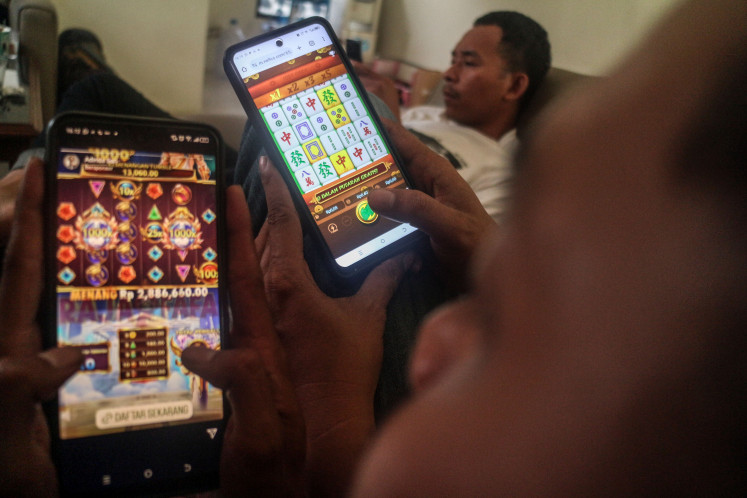Popular Reads
Top Results
Can't find what you're looking for?
View all search resultsPopular Reads
Top Results
Can't find what you're looking for?
View all search resultsFacebook data can be used to help identify depression, study suggests
The study suggested that the analysis of the language used online by users could predict whether or not a user was depressed, three months before the person using the account received a medical diagnosis of depression.
Change text size
Gift Premium Articles
to Anyone
M
any factors can cause depression and the condition is currently still under intense study. One such study by researchers from the University of Pennsylvania and Stony Brook University was recently published in Proceedings of the National Academy of Sciences.
“We want to think of new ways to get people resources and identification for depression earlier,” said Dr. Raina Merchant, director of the Penn Medicine Center for Digital Health and one of the study's authors.
Researchers observed a group of less than 700 Facebook users — recruited for the study from a hospital emergency department — and their more than 500,000 Facebook posts, focusing on the words, post lengths, frequency of posting and timing of posts. They found, after receiving permission to access the users' electronic medical records and Facebook history, that for every participant of the study that had been diagnosed with depression, five more had not been diagnosed with depression. This helped them to create a sample that reflected the rates of depression in the average population.
The study suggested that the analysis of the language used online by users could predict whether or not a user was depressed, three months before the person using the account received a medical diagnosis of depression.
Researchers cautioned, however, that their work was still in its very early stages.
“Depression is a really debilitating disease and we have treatments that can help people,” said Merchant.
Read also: Social good of social media
It seemed that indicators such as “I, my, and me” as well as “hurt, tired” and “hospital” were used more often by participants in the preceding months to their diagnosis of having depression. From this, a computer model was designed to predict which people would receive a diagnosis of depression — the model seemed to work best when using Facebook data from three months before a study participant received their diagnosis.
However, when more than three months of data was used, the model became less precise in its predictions.
“We are at the very beginning of trying to understand how this data is sometimes people just saying hi to each other.” Merchant said. “But sometimes, it can give us insight into the health of individuals and communities.”
An assistant professor in Georgia Tech’s school of interactive computing, Dr. Munmun De Choudhury, who has previously conducted separate research into Twitter data, said, “With social media and other data, you can start to fill in those gaps.”
Dr. De Choudhury said that in the future, if patients shared social media data with their doctors, healthcare could become more personalized. “You shouldn’t be using such an algorithm by itself at any point in time. We should see this data the way we do any health data. It is the data of the patients."
Dr. Merchant agreed that more research was needed. “We need a better understanding of not just how it tells us about our health, but also how the use of technology affects our health.” (acr/kes)










